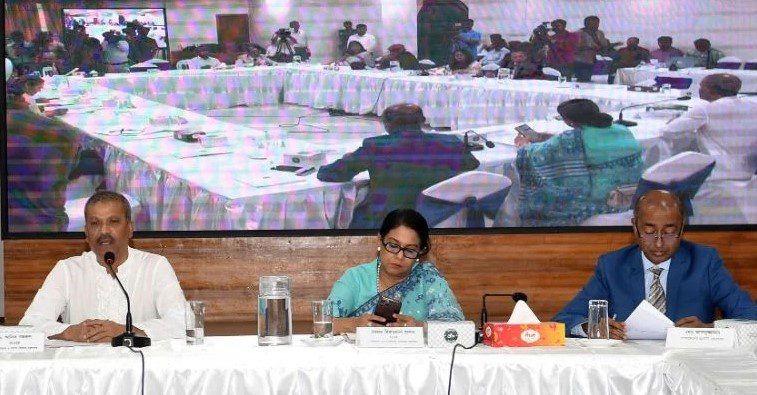Adviser for Law, Justice and Parliamentary Affairs Professor Asif Nazrul stated that a Truth and Reconciliation Commission will be established in the country. To this end, a delegation, including the chief justice and the law adviser himself, will visit South Africa to further gain knowledge regarding the matter. Upon their return, discussions will be held with eminent personalities before forming the commission.
These remarks were made on Saturday afternoon while delivering the presidential speech at a consultation meeting on the Enforced Disappearance Prevention and Redress Ordinance, 2025 (2nd Draft) at the Judicial Administration Training Institute in the capital.
Writer and online activist Pinaki Bhattacharya joined the event virtually as the keynote speaker and shared his opinions on several sections of the draft law.
The law adviser said, “This nation will not achieve liberation through endless conflict; hence, national unity must be built. Those who have committed heinous crimes like genocide and crimes against humanity are not large in number. They must be given adequate and appropriate punishment. To establish that they do not represent mainstream viewpoints in the country, a Truth and Reconciliation Commission must be formed.”
Asif Nazrul stated that the government is firmly committed to ensuring proper trials and maximum legal punishment for those involved in genocide and crimes against humanity. Simultaneously, the government will continue enacting laws to prosecute enforced disappearances and other crimes to prevent recurrence in the future.
During the meeting, various sections and sub-sections of the draft ordinance were discussed. Interim government advisers Syeda Rizwana Hasan (Environment, Forest, and Climate Change), Professor Chowdhury Rafiqul Abrar (Education), Attorney General Md Asaduzzaman, Chief Prosecutor of the International Crimes Tribunal Mohammad Tajul Islam, political analyst and columnist Farhad Mazhar, Supreme Court lawyer Barrister Md Ruhul Quddus Kazal, human rights activists Rezaur Rahman Lenin and Sayera Rahman Khan, and Maayer Daak coordinator Sanjida Islam presented critical opinions on the matter.


